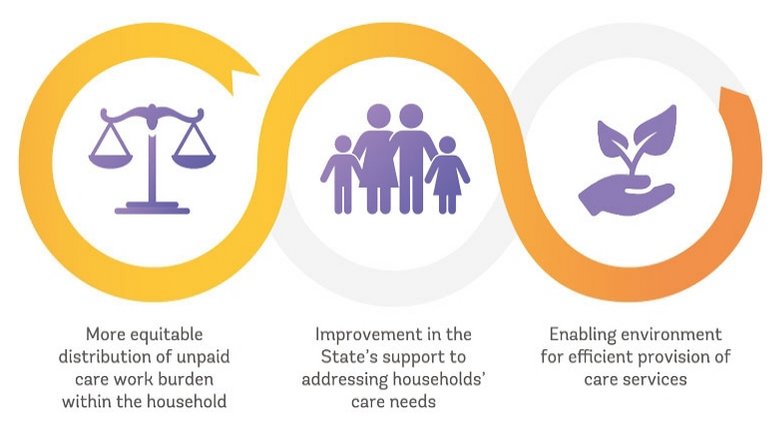The second State of the Mashreq Women Report: Who Cares? Care Work and Women’s Labor Market Outcomes in Iraq, Jordan and Lebanon examines the potential for care services expansion to improve women’s labor force participation in Mashreq countries. Evidence for Mashreq countries indicates limited use of childcare services. However, little is known about the reasons for low service utilization; whether due to the limited availability of childcare services (supply constraints), the unwillingness of families to use childcare services due to preference for care within the household (demand constraints), or due to the mismatch between demand and supply of childcare services (cost, quality, location, among other things). Building on newly collected data in Iraq, Jordan and Lebanon, the Report addresses existing knowledge gaps on both demand and supply of care services, with a particular focus on childcare.
Findings of the analysis indicate that existing care policies in the Mashreq are not well aligned with the objective of increasing female labor force participation. Two common challenges emerge. First, existing policies reinforce the caregiving role of women, thereby failing to promote a more equitable distribution of care responsibilities within the household. Second, by restricting support only to workers in the public or formal private sectors, where labor demand is most constrained, existing policies do not promote higher female labor force participation. With limited free public childcare service provision and financial support to households, access to quality and affordable childcare services is not sufficient to meet needs. Despite prevailing gender norms, findings of the report indicate that addressing constraints to the supply of quality and affordable childcare services can lead to sizeable improvements in female labor force participation, particularly in Jordan and Lebanon. Moreover, expanding formal childcare service provision could further support women’s economic prospects by creating more jobs in a sector where most women express interest in engaging.
Based on the analysis and a review of international best practice, the Report identifies the need for a three-pronged approach to achieve: (i) more equitable distribution of the unpaid care work burden within the household; (ii) improved State support to address households’ care needs, particularly for the most vulnerable households; and (iii) an enabling environment for efficient provision of quality childcare services.
